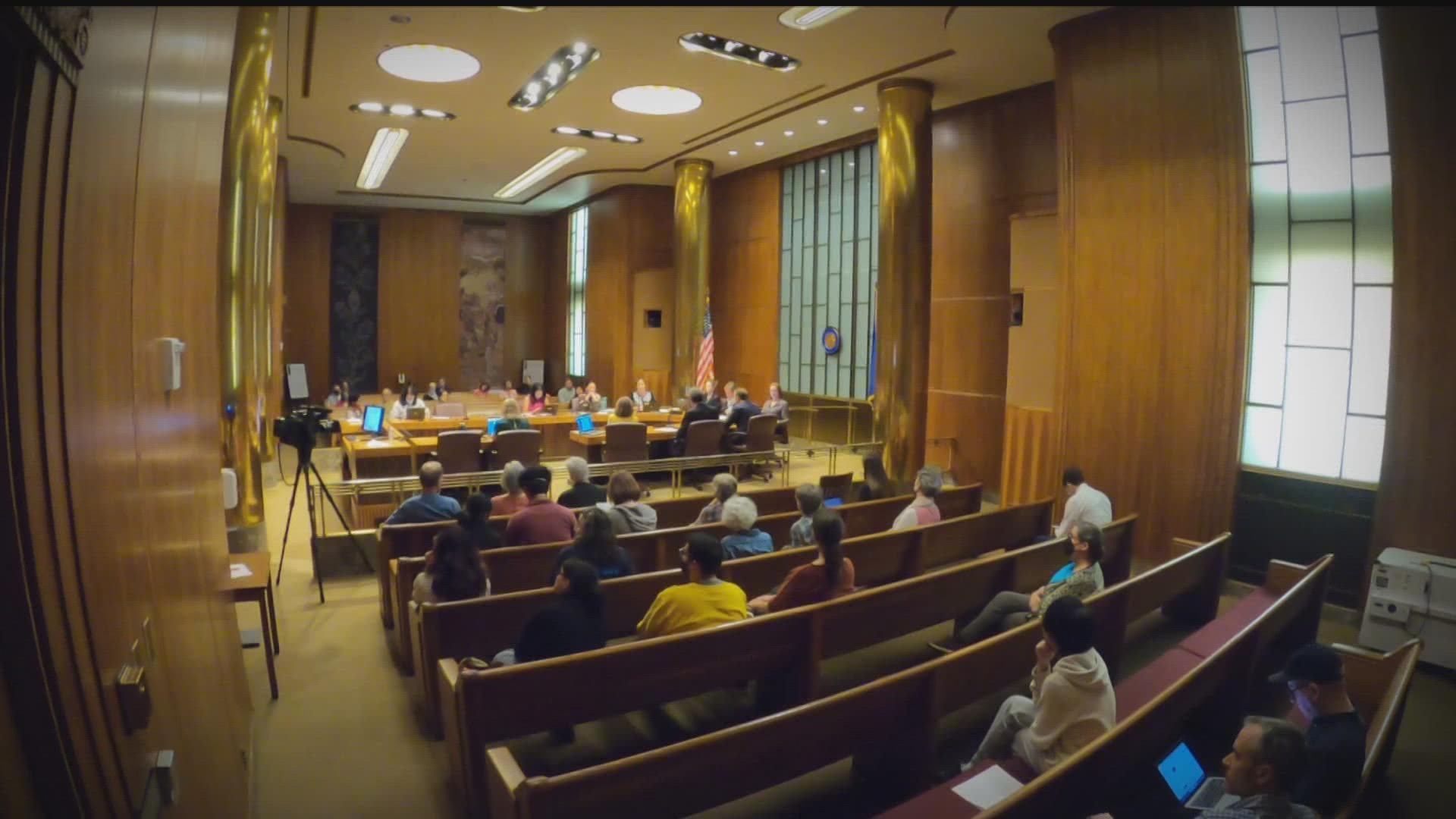SAINT PAUL, Minn. — The St. Paul City Council approved a package of amendments on Wednesday to the rent stabilization measure that voters approved last November, carving out exceptions for new construction and giving more leeway to landlords when their tenants change, among other significant moves.
The council's 5-2 vote doesn't change the annual 3% cap that 53% of voters favored in the 2021 municipal election, considered one of the strongest rent control measures in the United States. However, the amendments do place new regulations and limitations around the rent control policy, alleviating concerns from developers about economic development while at the same time angering renters who say their ballot measure has been "gutted."
Most notably, the council approved a 20-year exemption for new construction, with a so-called "lookback" period. This means the owners of any building constructed from roughly 2003 to 2043 will be able to raise rents as high as they see fit, without having to abide by rent stabilization. Also, if tenants leave an apartment vacant, the landlords will be able to raise rents as high as 8% plus inflation on the next tenant.
"We spent so much time into the policy to protect the renters," said Clara Ware, a renter on St. Paul's East Side. "I'm just so angry today."
However, Mayor Melvin Carter has signaled that he'll sign the measure, telling KARE 11 in a statement on Wednesday that "this ordinance protects renters while helping construct the new housing units we need for the future. I thank all the community members who helped craft this policy, and applaud the Council for passing it."
Ward 3 Council Member Chris Tolbert was among the biggest proponents of the changes, pointing to a slowdown in development since voters passed the rent stabilization measure. Major developers, like Ryan Companies, have raised concerns and even put some projects on hold due to the "detrimental" impact of rent control on economic development.
"I think this ordinance, and the improvements that we've made to it, will hopefully help carry out the issues that brought rent stabilization to the ballot -- protecting renters, and protecting against rent spikes," Tolbert said, "while also hopefully minimizing the negative consequences of the policy that we have seen and I believe we'll continue to see without these amendments. And that's important."
It's difficult to quantify how rent control has impacted construction in St. Paul, with various numbers being presented by various agencies to the city council in recent weeks. However, the city's Department of Planning and Economic Development shared new numbers with KARE 11 on Wednesday, revealing that the number of building permits issued from January 2022 to July 2022 dropped 31.4% compared to the previous four-year average.
Ward 2 Council Member Rebecca Noecker voted in favor of the amendment package, which she said "strikes the right balance."
"We all want more housing so that current tenants, and also future tenants, can live here in St. Paul, and we want housing so that tenants can have more choice and more affordability and more power," Noecker said. "The questions I think we've been wrangling very visibly with... are about how to make sure that this ordinance does both. That it protects renters and ensures a supply of housing. And I actually think those are two sides of the same coin."
Several council members pointed out that the amendments add some clauses to protect renters, including a requirement that landlords must notify tenants if they're seeking an exemption to the three-percent cap. Since it took effect, the rent control policy has allowed landlords to seek up to an 8% raise if they can prove they've made upgrades to their buildings.
Ward 4 Council Member Mitra Jalali, a strong proponent of rent stabilization, voted against the package of amendments.
"I know that we need to build our city and build more housing. The problem is, we can't do that on the backs of people who need rent stabilization and are already here," Jalali said. "We can't pass a new construction exemption that is unqualified without anything we're getting."
To the contrary, some developers had actually pushed for a 30-year exemption, rather than the 20-year policy passed by the council.
MORE NEWS: Financing your child's band instrument
"We believe a 30-year new construction exemption would bring some of those groups back to Saint Paul since it would demonstrate that the City is serious about growth and progress," Ryan Companies told KARE 11 in a statement following the vote on Wednesday. "We cannot force lenders and investors to put money into Saint Paul. If adequate investment is not made, Saint Paul will have less new housing and likely more expensive housing costs as a result."
The council indicated on Wednesday that they may seek additional amendments in the future, to further clarify the rent control policies. Council Member Jane Prince, who supported the amendments, said she specifically takes issue with the self-certification process that gives landlords the right to seek exemptions to the three-percent annual cap.
St. Paul renter Clara Ware, meanwhile, noted that all council members are up for re-election in 2023.
"I think they're not doing their job," Ware said. "Everyone who is not going to be in alignment with us is going to be voted out next year... if I have to run for city council myself."
Watch more local news:
Watch the latest local news from the Twin Cities in our YouTube playlist:

